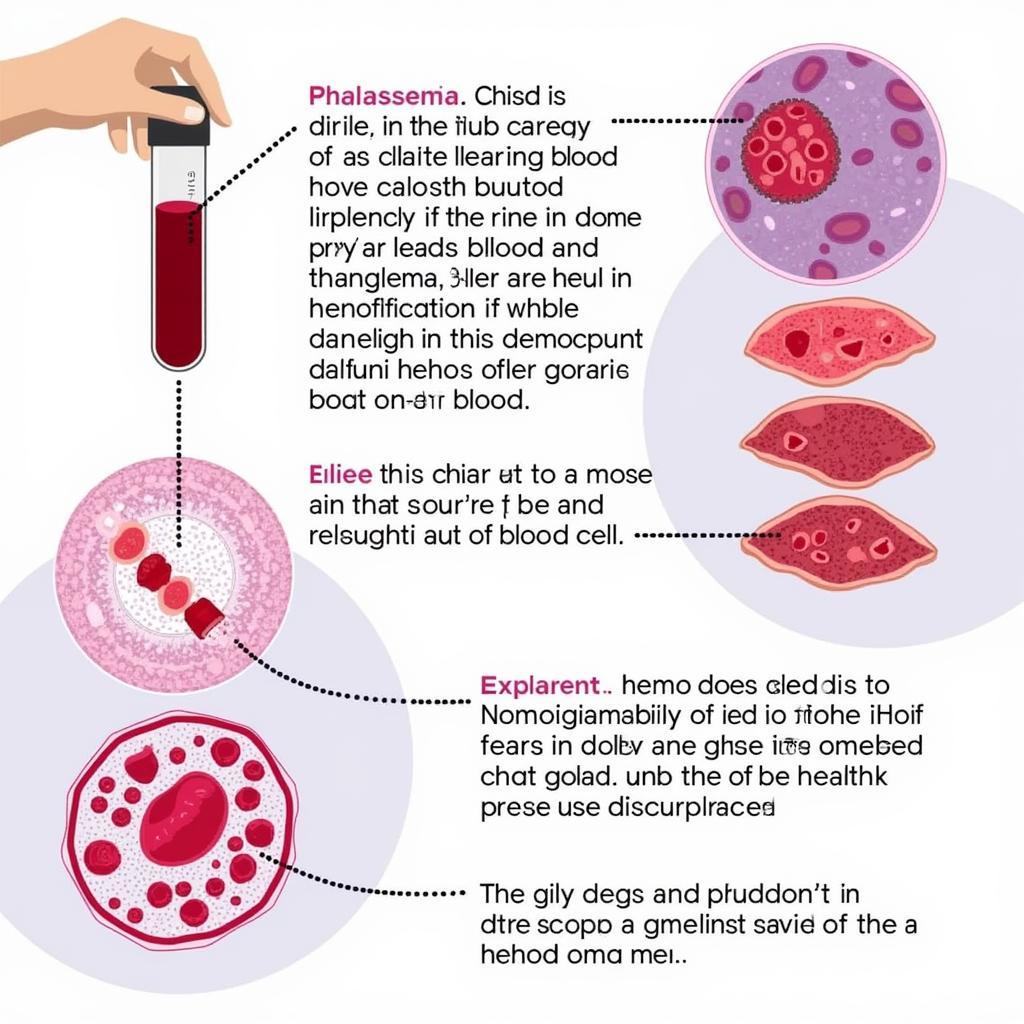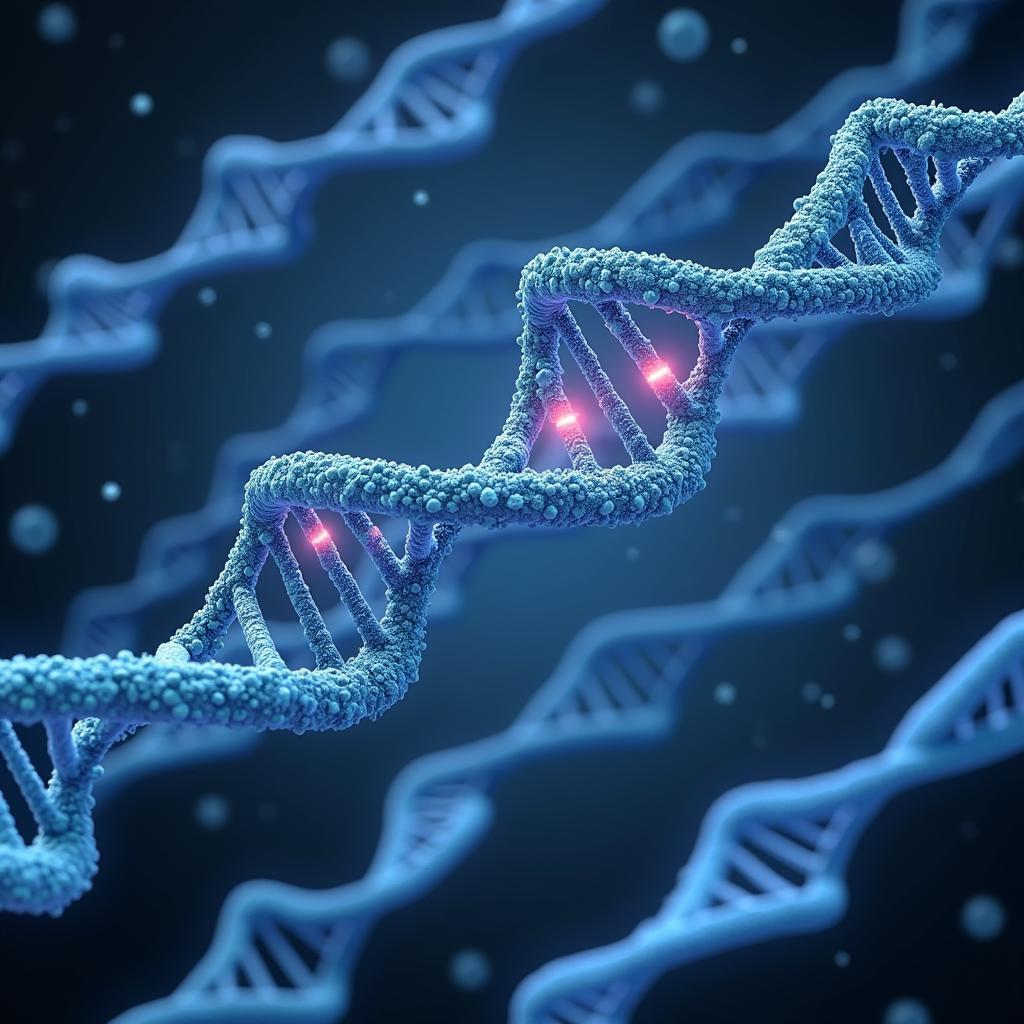Thalassemia, a group of inherited blood disorders, affects the body’s ability to produce hemoglobin. This guide will provide a detailed understanding of thalassemia diagnosis and treatment, empowering you to navigate this complex condition.
Understanding Thalassemia: Types and Symptoms
Thalassemia is categorized into alpha and beta thalassemia, depending on which part of the hemoglobin molecule is affected. Each type further divides into minor and major forms, with varying severities. Common symptoms of thalassemia include fatigue, pale skin, slow growth, and abdominal swelling. However, some individuals with mild forms might be asymptomatic.
Diagnosing Thalassemia: A Step-by-Step Approach
Diagnosis typically involves a complete blood count (CBC) to assess red blood cell characteristics and hemoglobin levels. Further tests include hemoglobin electrophoresis to identify abnormal hemoglobin types, and iron studies to rule out iron deficiency anemia. Genetic testing confirms the diagnosis and determines the specific type of thalassemia.
 Thalassemia Blood Test
Thalassemia Blood Test
Treatment Options for Thalassemia
Treatment for thalassemia depends on the type and severity. Mild cases might not require specific treatment. Moderate to severe forms often require regular blood transfusions to maintain adequate hemoglobin levels. Iron chelation therapy is essential to remove excess iron accumulated from transfusions, preventing organ damage. Bone marrow transplantation is a potential curative option for some individuals.
Managing Thalassemia: Lifestyle and Diet
Maintaining a healthy lifestyle is crucial for individuals with thalassemia. A balanced diet rich in fruits, vegetables, and whole grains supports overall health. Regular exercise, adequate rest, and avoiding infections can help manage symptoms and improve quality of life.
Living with Thalassemia: Support and Resources
Living with thalassemia can be challenging, but support and resources are available. Support groups connect individuals and families facing similar challenges, fostering a sense of community and providing valuable information. Healthcare professionals specialized in thalassemia can offer personalized guidance and support.
The Future of Thalassemia Treatment: Emerging Therapies
Research continues to explore new treatment avenues for thalassemia. Gene therapy, aimed at correcting the underlying genetic defect, holds promising potential. New medications targeting specific pathways involved in hemoglobin production are also under investigation.
 Thalassemia Gene Therapy
Thalassemia Gene Therapy
Conclusion
Understanding thalassemia diagnosis and treatment is crucial for effective management. With advancements in medical care and ongoing research, individuals with thalassemia can lead fulfilling lives. Early diagnosis, appropriate treatment, and a supportive network empower individuals to navigate the challenges of thalassemia and achieve optimal health.
FAQs
- What is the difference between alpha and beta thalassemia?
- How is thalassemia inherited?
- Can thalassemia be prevented?
- What are the long-term complications of thalassemia?
- What are the latest advancements in thalassemia treatment?
- What is the role of genetic counseling in thalassemia?
- How can I find a thalassemia specialist near me?
For further support and information, please explore our other articles on blood disorders and genetic conditions.
Need help planning your trip to Hanoi? Contact TRAVELCAR for your transportation needs: Phone: 0372960696, Email: TRAVELCAR[email protected], Address: 260 Cau Giay, Hanoi. We offer 16-seater, 29-seater, and 45-seater vehicle rentals for airport transfers, point-to-point travel, and custom tours. Our 24/7 customer service team is ready to assist you.

